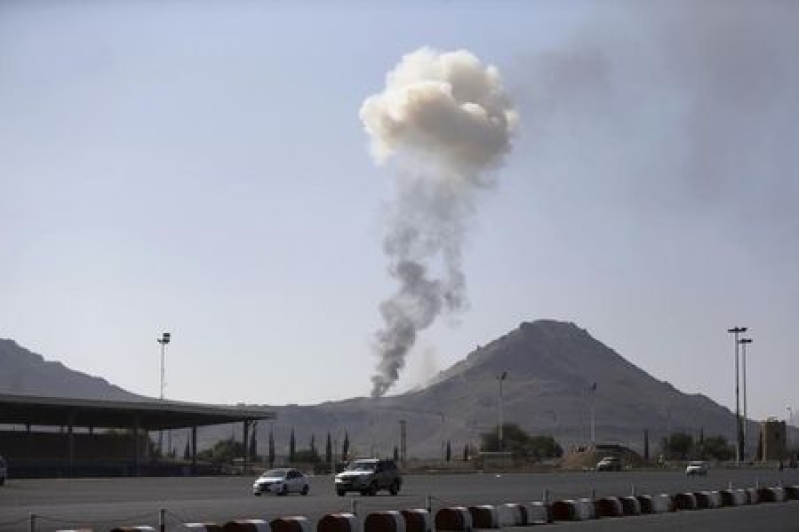
Saudi Arabia would like to see a ceasefire in Yemen to allow for the delivery of humanitarian aid, but it does not trust the Houthi rebels to abide by such a truce, the head of a Saudi center that coordinates humanitarian assistance for Yemen said on Monday.
The Iranian-allied Houthis and forces loyal to former Yemen President Ali Abdullah Saleh seized the capital, Sanaa, a year ago. The Saudi-led coalition began bombing them in March in a bid to restore President Abd-Rabbu Mansour Hadi's authority.
"From our previous experience the ceasefire was not acknowledged and it was violated," Abdullah Al-Rabeeah, general supervisor of the five-month-old King Salman Humanitarian Aid and Relief Centre, told reporters. "If there is a ceasefire it has to be a realistic ceasefire."
Several attempts at a humanitarian truce have failed with the warring parties blaming each other for violations.
The United Nations has designated Yemen as one of its highest-level humanitarian crises, alongside emergencies in South Sudan, Syria and Iraq. It says more than 21 million people in Yemen need help, or about 80 percent of the population.
Yemen relies on imports, but shipments to the Arabian Peninsula state have slowed to a trickle with aid groups blaming a near-total blockade by the Arab coalition, which is inspecting vessels in a bid to thwart arms deliveries to the Houthis.
A U.S. Navy report said earlier this month that the coalition was slowing aid delivery by warning commercial vessels to stay away from areas hit by fighting, an accusation the coalition denied.
U.N. aid chief Stephen O'Brien said in August that coalition air strikes on Yemen's Red Sea port of Hodeida could worsen the humanitarian crisis. On Monday, as he sat next to Al Rabeeah at a news conference, he said the port had been compromised.
"The first and the best humanitarian response is for the fighting to stop and that is what is urged at all times on all the parties engaged," O'Brien said.
In a bid to increase commercial shipments to Yemen, he said the United Nations had come up with its mechanism to inspect any suspicious vessels but was still trying to raise the $8 million needed for it to be operational.
Yemen only received 1 percent of its monthly commercial fuel needs in September, the United Nations said. Access to water usually depends on fuel-powered pumps, while hospitals struggle to operate without fuel and aid cannot be delivered.
(Reporting by Michelle Nichols; Editing by Cynthia Osterman)







